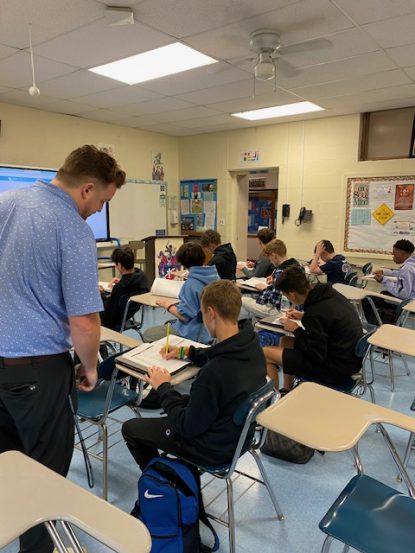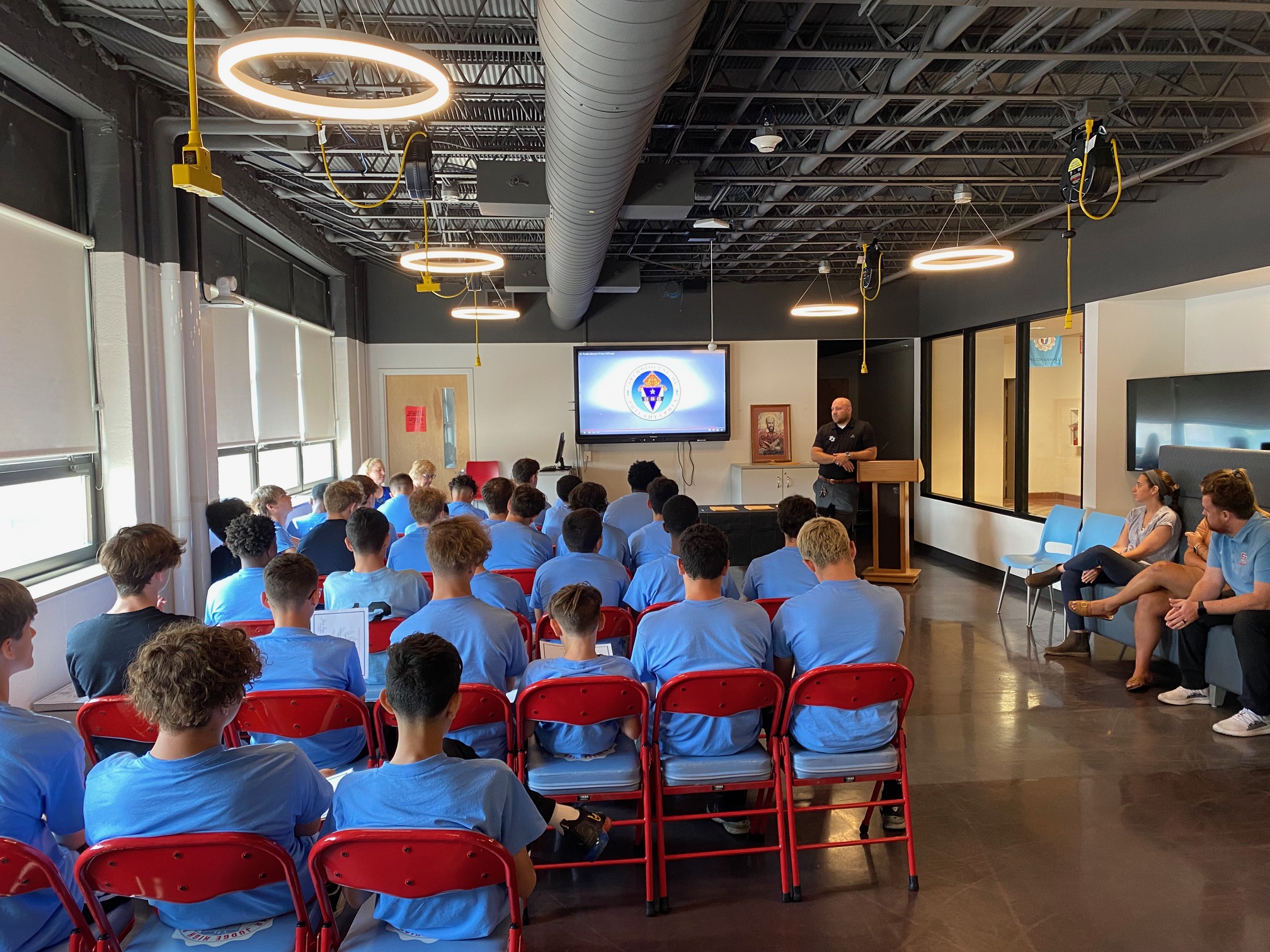The transition to high school from elementary school can be daunting for some freshmen students, especially if they have struggled academically in grade school.
Helping these students succeed is the goal of the archdiocesan Office of Catholic Education’s Summer Bridge Program which provided academic enrichment classes to about 215 incoming freshmen from eight archdiocesan high schools this summer. This year’s program ran from Wednesday, June 21 through Thursday, July 20, 2023.
The high schools that offered the program included Archbishop Ryan High School; Father Judge High School for Boys; Little Flower Catholic High School for Girls; St. Hubert Catholic High School for Girls; SS. John Neumann and Maria Goretti High School; West Catholic Preparatory High School; Cardinal O’Hara High School in Springfield; and Monsignor Bonner and Archbishop Prendergast Catholic High School in Drexel Hill.
The Summer Bridge Program began in 2016 at Father Judge High School and St. Hubert High School in Northeast Philadelphia. Dr. Joanne Walls, former principal of St. Hubert’s and current principal of St. George Independent School, along with Oblate Father James Dalton, former principal of Father Judge and current school minister for Neumann Goretti, collaborated on launching this initiative. Over the past seven years, the program has been offered annually at several city and suburban high schools throughout the Archdiocese.
Some 20 sessions were held this summer with classes focusing on enhancing the students’ reading comprehension, math, study skills, and time management. The curriculum is taught by Archdiocesan High School teachers.

(Photo: Father Judge High School)
Father Dalton explained that each day begins with a homeroom period, and breaks are provided between each hour of instruction.
“The nice thing about the breaks is that the teachers are there with the students, and they can get to know them personally,” he said. “The teachers also can follow up with the students individually as necessary at those times.”
Students are invited to participate in the Summer Bridge Program based on their high school placement test results, TerraNova scores and/or elementary school performance, according to Father Dalton.
“We’re working with a population that might become discouraged early on in their school year,” he explained. “If they’re given a little bit of a summer introduction and some attention from the teachers, there’s a better chance they’re going to continue on and be successful.”
The program also provides guidance on the transition from elementary school to high school and information about the culture of each high school. An added benefit for students participating in the program.
“There’s a sense of comfort at the end of the summer, and then when the first day of school comes, their peers are wondering what’s going on,” Father Dalton said. “The ones who’ve been to the Bridge program have a familiarity with many things, especially with some of the staff. They have a sense that the teachers really have their best interest at heart.”
Likewise, the teachers have the opportunity to get to know the students and become familiar with their individual needs.
“They know these students on a personal level before school begins, and it gives the staff and the teachers some sense of what the students’ needs will be moving forward,” Father Dalton said.
At the beginning of the Summer Bridge Program the freshmen are given assessments so that their progress can be evaluated after they complete the program.
“We do a pretest in math and reading, and we do a post test in math and reading,” Father Dalton explained. “We compare the increase and the decrease and see if some students stay stable. The overwhelming number of students have a math increase and a reading increase.”
This year, 35 students completed the Summer Bridge Program at Father Judge High School, according to Ed Mullen, director of the Father Brisson Center for Academic Excellence. During the upcoming school year, he said those students will continue to receive support through Judge’s Crusader Program which assists students with improving academic skills in multiple disciplines, identifying post-secondary options, and offering counseling services to guide students in meeting spiritual and academic challenges.
“There are a number of students who come to school with learning challenges,” Mullen said. “Part of what we do is we monitor not only their academic performance, but their attendance, as well as their social interaction with their peers and the staff. I spend time talking with parents about the variety of ways in which we can assist the students in any of those areas.”

Incoming freshmen participate in the Summer Bridge Program at Father Judge High School (Photo: Father Judge High School)
The Brisson Center, located on the second floor of the school, is where Crusader students can work on assignments or receive one-on-one instruction from teachers.
“The boys have the opportunity to stay after school and complete their work before they go home,” Mullen said. “We also have our own after school and lunchtime and morning tutoring programs here.”
He noted that of the 19 recent graduates who participated in the Crusader Program, 12 received academic honors; nine will attend colleges or universities; four will attend trade schools and/or apprenticeship programs; and six are entering the workforce.
“The neat thing about the program for me is that boys who have never really encountered a lot of academic success wind up making our honors program here at Judge,” Mullen said. “I think that has an influence on where their next station in life is going to be or it gives them an option that they may not have considered before.”
Father Dalton said he is looking forward to seeing the positive impact the Summer Bridge Program will have on the students as they begin their freshman year.
“We’ll know for sure when we see the first quarter report cards, and I do get to see the first quarter report cards of the students who attended the Bridge program,” Father Dalton said.
“I will see the marks at the end of the year, and it’s always encouraging to see that the students have passed their courses and that they’re still in school.”
PREVIOUS: IHM Sisters Celebrate New Life in Community
NEXT: Delaware County Parish Honors Mary with Triduum of Prayer For Feast Day




Share this story